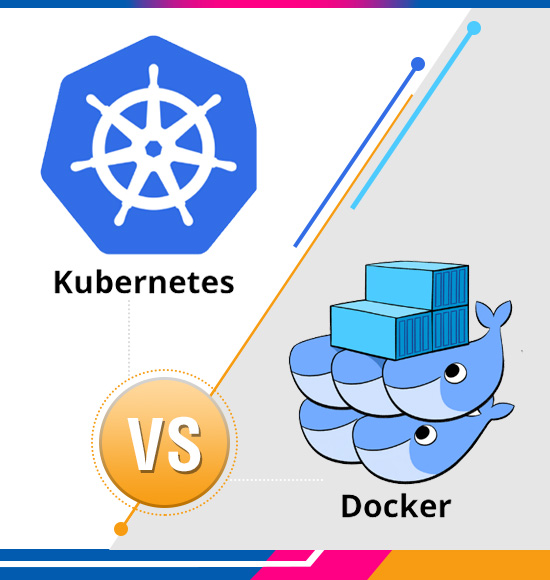Exploring Node.js: Transform Your Web Development with Speed and Scalability
Node.js is a cross-platform, open-source tool that enables web developers to write, test, and debug JavaScript code outside of a browser. It offers a variety of APIs that expand the capabilities of JavaScript back-end development, including support for file systems, HTTP requests, and child processes. These functionalities are particularly appealing to web developers since they’re not feasible within a browser.
Why Node.js?
Node.js has a wide range of applications due to its adaptability and efficiency. It is essential to be aware of the most frequent use cases for Node.js, which include:
Real-time Web Applications
Node.js is a popular choice for developing real-time web applications, such as instant messaging and gaming apps, due to its impressive event-driven and non-blocking architecture. It can easily manage multiple requests simultaneously, which is ideal for situations where updates must be immediately visible to multiple users.
Single-page Applications and Dynamic Websites
Node.js is a programming tool that helps create interactive websites and apps. It’s beneficial because it can handle many requests simultaneously without slowing down. It can provide users with fast, customized content, improving the experience.
Chatbots and IoT Applications
When it comes to scenarios that demand low latency and high data-intensive capabilities, Node.js is a top choice. Its features make it ideal for handling the high data rates of IoT devices and delivering seamless and speedy conversational experiences in chatbots.
Collaborative Tools
Node.js is well-suited for developing collaborative tools like Trello and Google Docs that require real-time data synchronization across users due to its ability to handle multiple connections concurrently.
Microservices and APIs
Node.js is an excellent choice for developing microservice architectures and RESTful APIs because of its lightweight nature. This allows developers to break down applications into smaller, more manageable modules that can be developed, tested, and deployed independently.
Streaming Applications
Node.js excels at developing streaming applications due to its efficient handling of data streams. This makes it an excellent choice for such projects. In particular, it can process files during the upload process, significantly reducing the time required for overall processing.
Node.js is a versatile tool that can be used for a wide range of applications, including real-time web applications and microservices. It provides developers with the necessary features and capabilities to create scalable, efficient, and dynamic web applications, making it an essential asset in modern web development.
Advantages of Node.js
Scalability
When it comes to scalability, Node.js applications have an advantage. They can be scaled vertically and horizontally, meaning you can add more resources to existing nodes or quickly add new ones. Another benefit of Node.js is that it doesn’t require a large block in the development process. It works well with microservices and modules, making it an excellent choice for startups that want to grow quickly and easily.
Boosts development speed
As a developer, you can speed up creating web apps with Node.js. Its lightweight tools and diverse range of features can be incredibly useful. By utilizing the npm registry, you’ll have access to a plethora of solutions, modules, and libraries, allowing you to create high-quality web apps with less effort. Node.js and its accompanying libraries also help reduce bugs and shrink the size of your web app by using reusable templates. Optimizing your development process in this way can significantly impact your time to market.
Freedom to develop apps
Node.js empowers developers to create cross-platform applications with ease. With frameworks such as Electron and NW.js, Node.js allows for the development of web apps that are compatible with Mac, Windows, and Linux operating systems. Additionally, it is a popular choice for IoT solutions. If you want to improve your team’s coding efficiency and performance, Node.js is the way to go.
High performance
The V8 JS engine compiles JavaScript code directly into machine code, making it resource-efficient and accelerating the framework’s speed. Additionally, Google invests heavily in improving its search engine’s performance.
The Node.js Foundation is a community of founders from top enterprises like IBM, Microsoft, Fidelity, and SAP, established in 2015. The community has a vast number of software developers and Node.js enthusiasts who constantly contribute to developing and nurturing the community to support fellow developers. Furthermore, Node.js is supported on Github, making it effortless and fast to develop and support the framework.
Rich ecosystem
When considering the ease and abundance of Node.js, one can’t help but think of npm. It may surprise you that npm boasts a whopping 836,000 libraries, with over 10,000 new ones published each week. More than 475,000 packages and registries are available, with 11,000 fresh tools added weekly. This is a significant reduction in both time and cost when developing and bringing a product to market.
Single programming language
Node.js provides a combination of languages for front-end and back-end development using Javascript. Despite its complexity, it is actually quite approachable and versatile. It streamlines the entire web app development process, making it efficient and effortless for developers and businesses. This saves time, energy, and resources, ultimately increasing productivity and profitability. Node.js not only simplifies web app development but is also currently the most popular technology in the market.
Contribution to full-stack and MEANstack
Javascript is the leading programming language, and Node.js has proven its worth as a valuable addition to a robust tech stack. Node.js offers many benefits as a standalone platform, including access to the JSON module library. It has gained significant popularity, with over 368,985,988 downloads, or an average of 1,010,921 per day, making it a crucial player in many tech ecosystems.
Examples of Node.js Apps
Node.js has gained popularity due to its robust features and capabilities, attracting numerous high-profile corporations and startups. Many popular applications that we use daily are built using Node.js. Netflix, LinkedIn, PayPal, and Uber are some of the most famous ones, but there are other impressive applications, let’s take a look at them.
Walmart
One of the biggest retail corporations in the world, Walmart, has incorporated Node.js into its web and mobile platforms. This decision was made to improve the efficiency of handling high volumes of customer traffic during Black Friday sales. By adopting a microservices architecture using Node.js, Walmart has been able to provide a smooth and scalable shopping experience, even during periods of peak traffic.
Trello
Trello is a well-known project management app that uses Node.js for its server-side. This allows it to handle a large number of open connections efficiently, making real-time updates possible. This is a crucial feature for Trello’s functionality.
Medium
The adoption of Node.js has enabled Medium to scale its services effectively, deliver millions of stories to its users, and manage a large volume of requests while ensuring a quick and responsive user interface.
eBay
The event-driven and non-blocking nature of Node.js has allowed eBay to handle high volumes of user requests in real-time, maintain live connections with browsers, and speed up their application, resulting in a much better user experience.
NASA
It may come as a surprise, but NASA has opted to use Node.js, which has enabled NASA to adopt a microservices architecture, enhance the safety of astronauts, and ensure mission-related data is consistently accessible and precise. As a result of this shift, the time taken to access data has been significantly reduced.
When not to use Node.js
We have explored several advantages of Node.js, but there are certain scenarios where it may not be the best option. When deciding on the appropriate technology for your project, you will come across various other alternatives. While each technology has its pros and cons, the ultimate factor to consider is whether you are creating any of the following applications. If so, it may be necessary to rethink your decision.
Server-side web application with a relational database on backend
Using Node.js with express.js, developing a web application on the server side without any additional frameworks is possible. However, if the application requires intensive CPU computation, it may cause Node.js to become unresponsive. Additionally, since Node.js’s relational database tool is not fully developed, choosing another environment to perform relational operations is advisable.
Heavy server-side processing
Node.js may not be ideal for heavy server-side computation because its event-driven and non-blocking I/O node models can block incoming requests while working on computing numbers.
CPU intensive computations
When it comes to Node.js, it’s important to understand that it is primarily designed to be single-threaded and event-driven. This approach can make applications highly scalable, but it may not be the best choice for applications that require CPU-intensive or computationally heavy tasks. The reason for this is that when a heavy task is running, it can block the Node.js event loop for an extended period of time. Unlike other programming languages such as Java or Go, which are multi-threaded and capable of performing multiple actions simultaneously. If you need to perform heavy computing tasks, it might be better to consider a different language.
Imperfection in tools
Node.js has proven to be extremely capable in a variety of scenarios. However, some users have reported problems with npm modules and libraries that are buggy, incomplete, or poorly documented, despite the contributions of a skilled Node community. Nevertheless, with the help of experienced Node.js developers, you can confidently choose the right npm modules and libraries for your project.
Conclusion
There are numerous advantages to using Node.js for web and app development, including its speed, scalability, and an extensive collection of modules that simplify the process. Furthermore, Node.js is supported by Amazon Web Services and is utilized by many of the most popular apps worldwide.
If you’re seeking a JavaScript framework to quickly and easily create an app, Node.js is an excellent option. However, it’s important to remember that unless you have a team of experts and UX/UI designers, it may be challenging to fully utilize this technology’s potential.
If you have a software idea that requires realization and you’re searching for exceptional JavaScript developers, we have a solution for you. The Copperchips professionals have over 7 years of experience, 100 certified experts, and 250 completed projects, making them an excellent choice for your next project.




